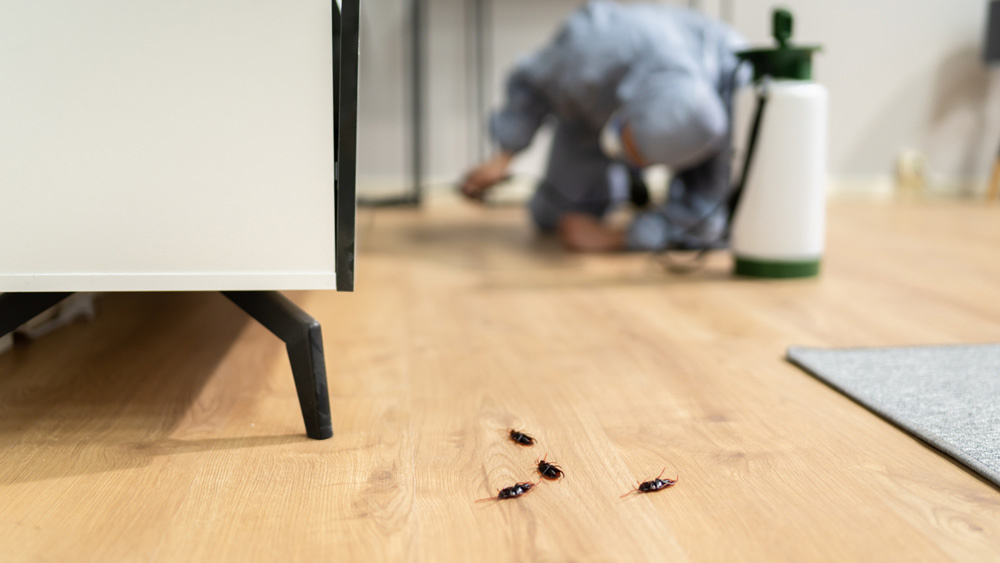The allure of DIY pest control is strong – it seems cost-effective, convenient, and empowering. But when it comes to truly eradicating pests, are these home remedies and store-bought solutions genuinely effective? Or are they just a temporary band-aid on a bigger problem?
The truth is, it’s a mixed bag. For minor, isolated pest issues, some DIY methods can offer a degree of success. A few ants marching across your counter? A quick wipe-down and a strategically placed bait trap do the trick.
However, the effectiveness of DIY pest control rapidly diminishes when you’re dealing with:
- Established Infestations: If you’re seeing pests regularly, or in significant numbers, it’s a strong indication that you have an established colony or breeding ground. DIY methods rarely penetrate deep enough to address the source of the problem.
- Hidden Pests: Many pests, like termites, bed bugs, and rodents, are masters of concealment. You might only see a fraction of the actual population. DIY sprays and traps often miss these hidden nests, leading to persistent re-infestations.
- Hazardous Pests: Certain pests, such as wasps, hornets, and certain spiders, pose a significant danger. Attempting DIY removal can lead to painful stings, bites, or even allergic reactions.
- Pests Requiring Specialized Knowledge: Different pests require different approaches. What works for ants won’t work for termites, and what works for mice won’t work for cockroaches. Without understanding the specific biology and habits of the pest, your efforts are likely to be futile.
- Repeated Problems: If you find yourself constantly battling the same pest issue, it’s a clear sign that your DIY methods aren’t getting to the root of the problem. You’re likely wasting time, money, and potentially exposing yourself to unnecessary chemicals.
DIY Pest Control: What Works and When to Call a Professional
These solutions are typically used for minor, isolated issues or as temporary deterrents.
- Basic Sanitation: This is the cornerstone of all pest prevention. Keeping your home clean, crumb-free, and eliminating standing water can deter a wide range of pests. This isn’t a “cure” for an infestation, but it’s essential for preventing them.
- Sealing Entry Points: Caulk cracks, repair screens, and seal gaps around pipes and wires. This can help prevent pests from entering in the first place. Again, preventative, not curative for an existing problem.
- Sticky Traps (for a few rogue insects): A few sticky traps can catch an occasional ant or spider. They are excellent for monitoring, but not effective for eliminating an infestation.
- Essential Oils (as deterrents): Some essential oils, like peppermint or tea tree oil might deter certain pests, like spiders or mice, for a short period. Their effectiveness is often limited and requires frequent reapplication.
DIY Pest Control: What Might Work (For Very Minor Issues):
Another spring pest control tip is to be mindful of the food in your home. A readily available food source will attract pests and encourage them to stay. To minimize this risk, keep dry food, pet food, and birdseed in airtight containers. Regularly cleaning out the pantry to remove crumbs and spills will also help. Avoid leaving dirty dishes in the sink overnight, as food residue can attract pests. Taking out the trash frequently and using a bin with a tight-fitting lid further reduces the likelihood of pests finding food in your home.
When to Put Down the DIY Solutions and Call a Professional:
The moment you observe any of the following, it’s time to pick up the phone and call Ecopest:
- Persistent Pest Sightings: If you’re seeing pests regularly, despite your best DIY efforts, it’s a sign of a larger, established infestation.
- Evidence of Nesting or Breeding: Finding droppings, gnaw marks, shed skins, or actual nests indicates a well-entrenched pest population.
- Damage to Property: Discovering chewed wires, damaged wood, or contaminated food means pests are actively causing harm.
- Dangerous Pests: Wasps, hornets, and aggressive spiders should never be approached without professional equipment and expertise.
- Peace of Mind: Sometimes, the greatest benefit of professional pest control is the peace of mind that comes with knowing the problem is being handled effectively and safely.
Trust Ecopest for Both Professional & DIY Pest Control
Professional pest control services offered by Ecopest provide targeted solutions. We identify the specific pest, understand its biology and habits, locate the source of the infestation, and apply treatments safely and effectively to ensure long-term eradication. Don’t let a small problem become a huge headache – know when to call in the experts!

